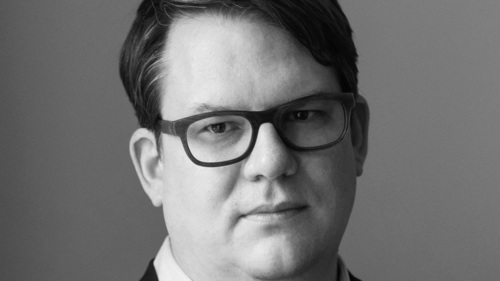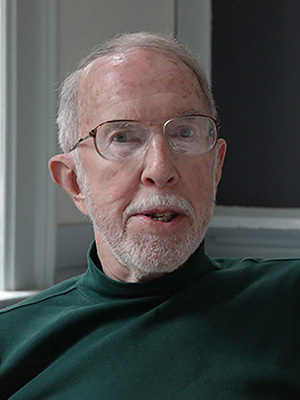
Sebastian Treese, a leader in the process of current architectural renewal in Germany, has been named the recipient of the 2021 Richard H. Driehaus Prize at the University of Notre Dame. He will be awarded the $200,000 prize during a virtual ceremony on March 26.
“Sebastian Treese’s work is a testament to the fact that it is possible to design imaginatively and still seamlessly build within the context of a rich cultural heritage,” said Stefanos Polyzoides, Driehaus Prize jury chair and the Francis and Kathleen Rooney Dean of Notre Dame’s School of Architecture. “His buildings enrich the urban settings where they are constructed, and upon reflection it is clear that they are imbued with a rich understanding of historical precedent.”
The jury citation states that Treese’s firm “represents a new generation of European architects with the intellectual grounding and commitment to carefully re-examine the nature of building in the modern world. The firm is reinterpreting the lessons of the past to produce a new traditional architecture and urbanism that embodies the culture, climate and physical order of existing places and represents the values associated with open and just societies.”
Treese is the founder of Sebastian Treese Architekten based in Berlin with projects in Hamburg, Dusseldorf and elsewhere in Germany, and with recent work as far afield as Mumbai, India. Raised in Mainz — a region of Germany with a palpable Roman heritage — and with family roots in Normandy, Treese developed an interest in traditional architecture from an early age. He completed his studies at the Berlin University of the Arts and went on to work with architect Hans Kollhoff in Berlin before establishing Sebastian Treese Architects in 2011.
The Richard H. Driehaus Prize at the University of Notre Dame was established in 2003 to honor lifetime contributions to traditional, classical and sustainable architecture and urbanism in the modern world. The prize is awarded annually to a living architect whose work has had positive cultural, environmental and artistic impacts while maintaining the highest ideals of classical architecture in contemporary society.

In conjunction with the Driehaus Prize, the $50,000 Henry Hope Reed Award, given annually to an individual working outside the practice of architecture who has supported the cultivation of the traditional city, its architecture and art, will be presented posthumously to John Reps, a renowned historian of urban planning whose work has deeply influenced generations of architects and urbanists. Reps will also be honored at the March 26 award ceremony.
“Many people espouse the virtue of learning from our past, but John Reps was a rare individual who undertook the serious research to unearth buried treasure in the form of original materials related to exactly what made the design of these admired cities and towns so successful,” said Richard H. Driehaus, founder and chairman of Chicago-based Driehaus Capital Management LLC. “Furthermore, Reps not only ensured this information was shared widely, he personally taught so many aspiring urban planners, designers and architects. He has an enduring legacy.”
The jury citation reads, “The work of Reps is integral to the understanding and practice of architecture and urbanism today. The results of his extraordinary scholarship and urbanist advocacy have inspired two generations of designers and are quietly embedded in their buildings and places throughout the United States and around the world.”
After receiving a bachelor of arts in 1943 from Dartmouth College and a master’s degree in city and regional planning from Cornell University in 1947, Reps studied in England for several years at the University of Liverpool and the London School of Economics, before returning to Cornell as a faculty member in 1951. Perhaps best known for his iconic book, “The Making of Urban America” (1965), he was the prolific author of more than a dozen books on the history of American Urbanism, as well as the owner and publisher of “Historic Urban Plans.” In recognition of his status as the father of modern American city planning history, in 1996 the American Planning Association designated him a Planning Pioneer.
This year’s Driehaus Prize and Reed Award laureates were selected by a jury composed of Robert Davis, developer and founder of Seaside, Florida; Melissa DelVecchio, partner at Robert A.M. Stern Architects; Léon Krier, architect and urban planner; Michael Lykoudis, professor of architecture at the University of Notre Dame; Elizabeth Plater-Zyberk, founding principal of DPZ; Demetri Porphyrios, principal of Porphyrios Associates; and Witold Rybczynski, the Meyerson Professor Emeritus of Urbanism at the University of Pennsylvania.